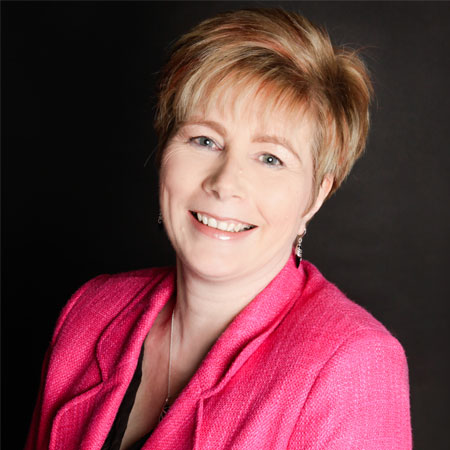Sue Spencer, previously head of global medical device services at UL notified body (NB) and who has a breadth of notified body IVD experience, has just been appointed head of IVD services at Qserve, joining Gert Bos and his team.
 Sue Spencer, head of IVD services at Qserve
Sue Spencer, head of IVD services at Qserve
Her appointment adds to the body of experience that Qserve has in working with notified bodies, and to the level of understanding of the challenges and issues affecting both manufacturers and notified bodies.
Bos, executive vice-president, partner at QServe, headed up teams at BSI UK and in Germany before joining Qserve, and had served as president of the EU notified body association, TEAM-NB. Jan van Lochem, CEO and partner of the consultancy, had also worked for notified bodies BSI and KEMA.
Medtech Insight’s Amanda Maxwell asked Spencer about her reasons for leaving notified body work and joining a consultancy. She also gave her views on what it is like to work for a notified body as the regulatory screws tighten and resources shrink, and an insight into how Brexit has impacted notified bodies.
Why have you made the decision to leave notified bodies now after so many years in senior roles?
I have now worked for three notified bodies during my career of over 30 years. First LRQA, during the inception of the Medical Device and IVD Directives, then – after a spell as a consultant and industry – I joined BSI, where I set up the IVD notified body, and finally UL, where I had a business role managing the Medical Device and IVD notified bodies plus certification for ISO (international standardization), MDSAP (the medical device single audit program), SFDA (the Saudi FDA conformity assessment bodies program), and INMETRO (the Brazilian testing and audit program).
Most recently, I was made redundant from UL following a UK office relocation. UL has withdrawn from direct interaction in the notified body sector, so it seemed a good opportunity to re-evaluate what I was doing. I made a similar move from LRQA to consultancy during the implementation of the MDD and IVDD, so there is a feeling of déjà vu.
Don’t ask me if I prefer notified body or consultancy, it is like asking me to choose my favorite child! But my first love must be the IVD sector, and I’m happy to work in whatever capacity as ultimately this benefits patients.
How has working in IVDs at notified bodies changed over the last five years?
Over the last 30 years there has been a considerable change in the way notified bodies operate. I started in the days where technical files and notified body reports were all paper!
Notified body operations now must be much more sophisticated, and submissions and notified body documentation are all electronic. This improves efficiency, but also requires considerable investment in infrastructure to support bespoke databases, systems to handle huge files in a secure manner and book very complex audits. Audit plans are like a 3D jigsaw, matching product, technology and geography against available dates.
The level of expertise and the clinical input required by notified bodies has changed exponentially over my 30 years and continues to accelerate. This means that notified body operations become increasingly complex to arrange – with subsequently increasing costs.
Finally, the level of scrutiny of notified bodies by competent authorities and accreditation bodies has continued to increase. There are larger and more frequent office audits, clinical audits and several witnessed audits. These all take time to prepare and respond to. Most notified bodies have had to increase headcount to support these activities, and often take experts off the road to support audits. This is not just for designation against the regulations, it is an on-going process.
When people join a notified body, they are often amazed at the volume of backroom work that is involved, the level of documentation needed plus the long hours and travel. Notified body staff are usually dedicated to their vocation and do it because patient safety is important to them.
What is the scale of the task notified bodies have ahead of them getting designated under the IVDR?
I think everybody is concerned about the capacity in the notified body sector. Notified bodies need at least one, and preferably two or more experts for each code for which they are designated. The ability to outsource is very limited. This all means that notified bodies must have a critical mass to be able to support a broad scope; or that smaller notified bodies will have to have a smaller scope, but this also makes them financially less viable.
Do you think there will be a shortage of IVD notified bodies and if so why?
We will see a shortage of notified bodies and a restriction in the capacity of even the largest notified bodies. Increased expectations regarding staff qualifications means that there is a limited pool of talent available.
Industry, consultants and competent authorities, as well as notified bodies, are all looking for the same talent. It takes six to nine months to train an auditor and 18-24 months to train a reviewer. On top of that, there are increased expectations about the independence and impartiality of notified body staff. So when these factors are combined, it means notified bodies have little ability to quickly adapt to changes in demand.
In addition, IVD reviewers and auditors must be trained before they can audit customers within a particular code. This means notified bodies have to be able to carry this cost as an overhead until the notified body is designated and before clients have signed up. When this is combined with the finite transition periods, it generates the "perfect storm."
What is the sentiment in a UK notified body like UL now, given Brexit and a potential no-deal UK exit from the EU?
UK notified bodies have had to find a way around Brexit. Many manufacturers required a solution to be in place by 29 March 2019, regardless of any extensions. There have been options open to notified bodies, including: opening an EU27-based notified body; transferring manufacturers to an existing EU notified body; and stopping operating in this sector.
The run up to 29 March 2019 was an extremely difficult time for all stakeholders, and called for very difficult decisions to be made by manufacturers and notified bodies to ensure the continued supply of devices to patients.
How stressful is working for a UK notified body right now?
Working for any notified body is challenging. Notified bodies often operate the "swan principle": the professionalism of all notified body staff creates an air of calm and control; whereas all notified body staff are paddling very hard under the surface to meet the new requirements.
They do this because they believe in the system and patient safety – but if you ask staff from any notified body how they are doing, they will say “surviving."
The requirements are demanding, and the competent authorities have high expectations and so do the manufacturers. Everybody is doing the best they can with the legislation and the resources available, but nothing is perfect, and this has an impact on customer service which is very frustrating for everyone involved.
To what extent has the very fact there is a risk of a no-deal already meant that UK notified bodies have lost customers?
This will have had a direct impact on the withdrawal from the notified body sector for several notified bodies.
What will your role be at Qserve?
At Qserve I will be heading up the IVD team, we already have a growing IVD team and we are gearing up to support the IVD industry. I’m pleased to be joining Qserve, which has a reputation for practical and pragmatic approaches.
In the IVD sector, we have a large number of manufacturers who do not have any notified body experience and who will need help climbing the learning curve quickly. In the past, I have worked for start-up companies as well as large multinationals, so I know that they have different challenges. I have also been a consultant and conducted a lot of training and I really enjoy sharing experience and seeing how this can benefit clients. I’m really looking forward to getting back to the coal face and working with manufacturers to help them meet requirements.
What advice would you offer to manufacturers in the EU at this time of major regulatory change?
I think in summary, this is not a perfect scenario, we must recognize that some of the changes were driven by public pressure, but the speed and the magnitude of the change is putting a strain on the system.
My advice would be: don’t wait, make sure you have plans in place now. Even if guidance is not yet in place, do the best you can and document it well. Finally, expect change; all stakeholders are learning, so expectations will change and inevitably increase over the years. Keep on top of the changing requirements and budget for these changes. Implementation of the regulations does not finish at the end of the transition period!
 Sue Spencer, head of IVD services at Qserve
Sue Spencer, head of IVD services at Qserve
